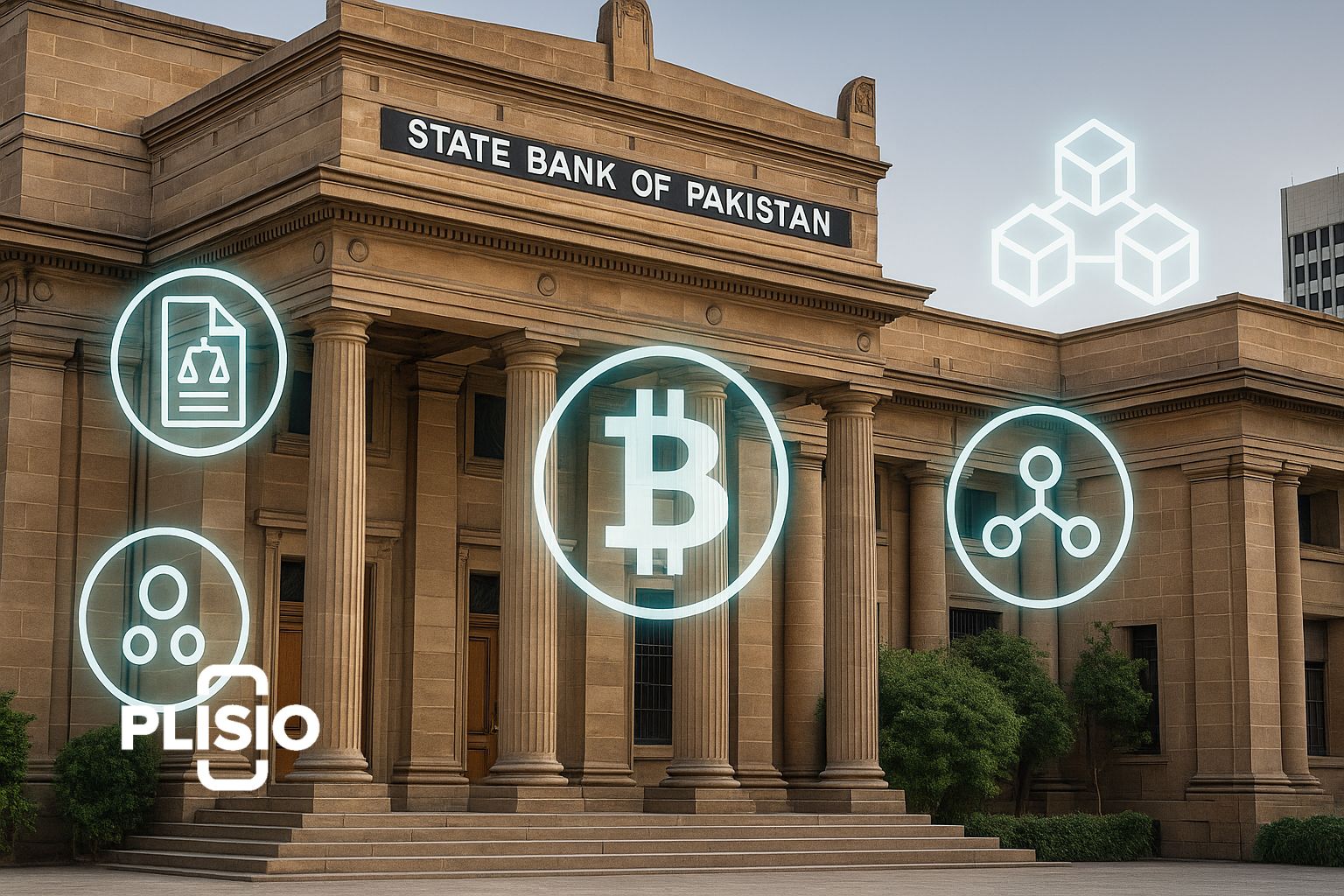Is Crypto Legal in Pakistan? An In-Depth Exploration of the Legal Status and Regulatory Framework

The use of crypto has surged globally, prompting governments to grapple with how to regulate digital assets. In Pakistan, the debate around whether crypto is legal in Pakistan has grown increasingly complex, involving multiple state bodies such as the State Bank of Pakistan (SBP), Finance Ministry, and the Securities and Exchange Commission. While cryptocurrency is banned under current regulations, the discussion on its legal status continues to evolve.
Legal Framework and Current Status of Cryptocurrency in Pakistan
As of mid-2025, cryptocurrency in the country remains a legal gray area. The SBP has issued several warnings about the risks associated with crypto assets and explicitly stated that cryptocurrency transactions are illegal under current regulations. However, this does not necessarily mean crypto activities are entirely absent. On the contrary, the use of crypto persists, often through peer-to-peer channels. Despite not being recognized as legal tender, digital coins such as bitcoin continue to circulate underground.
The Finance Secretary Imdadullah Bosal and the Finance Minister have reiterated Pakistan's commitment to reviewing the legal and regulatory framework. The committee on finance and revenue, along with the Standing Committee on Finance, is working closely with the Exchange Commission of Pakistan to draft a comprehensive cryptocurrency law. This could potentially change the status of bitcoin and other cryptocurrencies in the near future. A structured legal framework is expected to balance risk management with innovation.
Ban on Cryptocurrency in Pakistan and Its National Implications
The ban on cryptocurrency was enforced citing concerns by the Financial Action Task Force (FATF). According to the FATF, unregulated crypto transactions could facilitate money laundering and terrorism financing. Hence, the SBP maintains that cryptocurrency is banned, warning users that these crypto assets are not recognized as legal tender in Pakistan. Moreover, cryptocurrency trading platforms have been blocked, and there is active monitoring of crypto transactions.
This hardline stance, however, has not erased public interest. The desire to explore investment in the cryptocurrency sector continues to grow. The Pakistan Crypto Council, under the leadership of Pakistan Crypto Council CEO Bilal — also known as Crypto Council CEO Bilal Bin Saqib — has advocated for the government to regulate and integrate blockchain solutions instead of enforcing a blanket ban on crypto. They argue that the crypto sector could contribute significantly to national revenue and digital growth.

Key Legal and Economic Concerns of Crypto Regulation
- Risk of money laundering
- Absence of investor protections
- Energy consumption in bitcoin mining
- Volatility in the cryptocurrency market
- Difficulty in tracing illicit financial flows
These concerns have been cited by both the SBP and the Finance and Revenue department.
Crypto Policy Reform and Legalization Efforts by Finance Ministry
Recent statements from the Prime Minister on Crypto suggest a shift in policy. A proposed crypto policy includes steps toward forming a Pakistan Digital Assets Authority to oversee the crypto industry. This move signals a commitment to crypto adoption and the development of a forward-looking hub of digital innovation.
The Finance Ministry and the Ministry of Finance are collaborating with legal and technology experts to define a regulatory path forward. They are considering international best practices, especially from countries that have successfully integrated crypto and blockchain into their financial ecosystems. A phased approach is being discussed to ease the transition while minimizing risk.
One groundbreaking proposal includes the establishment of a national bitcoin wallet and the creation of the world's first government-led strategic bitcoin reserve. This initiative, led by Bilal Bin Saqib, also includes plans for bitcoin mining and AI data facilities. Such mining and AI data centres would contribute to digital innovation while harnessing blockchain technology. These measures could provide technological advancement while creating thousands of tech-based jobs.
Blockchain Technology Integration in National Strategy
Blockchain technology is widely seen as a transformative force, capable of reshaping industries. In Pakistan, public institutions and the private sector alike are examining how this decentralized ledger can enhance transparency, reduce corruption, and improve service delivery.
The minister on crypto and blockchain has highlighted its potential use in voting systems, public procurement, and real estate records. Encouraged by these possibilities, stakeholders are pushing to integrate blockchain in a variety of governance and business sectors. With secure, immutable data handling, blockchain could act as the foundation of a future-ready national infrastructure.

Legal Status of Crypto in Pakistan: Present vs. Proposed Reforms
|
Aspect |
Current Status |
Proposed Reforms |
|
Legal Status of Crypto |
Banned |
Regulated under draft law |
|
Recognition as Legal Tender |
Not recognized |
Under review by finance bodies |
|
Regulation Authority |
SBP |
Pakistan Digital Assets Authority |
|
Mining Legalization |
Unregulated |
Licenses and state-supervised operations |
|
Public Wallets |
Not available |
National Bitcoin Wallet in development |
Bitcoin and Other Cryptocurrencies Illegal Yet Popular
The legal and regulatory ambiguity around bitcoin and other cryptocurrencies has not stopped the rise of crypto miners in the country. While bitcoin and other cryptocurrencies illegal under the SBP’s directive, underground bitcoin mining persists in rural areas with low electricity costs.
The Ministry of Finance and the Finance and Revenue division are in discussions to determine whether bitcoin miners could be brought under a regulated structure. Legalizing bitcoin mining under license could bring in foreign investments, tax revenues, and innovation. This would help make digital currencies part of Pakistan’s mainstream financial ecosystem while deterring illegal operations.
Regulatory Framework for Cryptocurrency in Pakistan: Outlook
The Pakistan Crypto Council continues to lobby for a comprehensive regulatory framework. Their vision aligns with the minister on crypto and blockchain, who recently endorsed efforts to integrate blockchain into public infrastructure. The national blockchain strategy aims to create transparency, accountability, and economic efficiency.
Government and regulatory bodies are cautiously optimistic. The central bank, in collaboration with the Securities and Exchange Commission, is currently evaluating pilot programs to test cryptocurrency regulation within sandbox environments. These trials could help define new standards for cryptocurrency law, ensuring financial integrity while supporting technological advancement.
Advantages of Legalizing Crypto and Blockchain Technology
- Increased tax revenue
- Attraction of foreign investment
- Creation of high-tech jobs
- Financial inclusion through digital tools
- Enhanced transparency via blockchain technology
Given the increasing momentum, it’s likely that crypto and blockchain will soon be a recognized part of the financial system. With the help of the Exchange Commission of Pakistan, central bank, and other relevant bodies, cryptocurrency regulation could be formalized, ending the period where crypto was banned in Pakistan.
Encouragement to Invest in Crypto Under Legal Oversight
Though the banned cryptocurrency environment poses challenges, some in government have encouraged regulated innovation. Citizens are being encouraged to invest in crypto only through licensed platforms once a framework is approved. There are plans to link the national bitcoin wallet to biometric systems for enhanced security.
The legal currency status of digital assets is still undecided. For now, they are not recognized as legal tender, and the general public should approach crypto currencies with caution. Yet the commitment to crypto adoption by officials signals a future in which crypto transactions are no longer conducted in the shadows.
Final Verdict on the Legal Status of Cryptocurrency in Pakistan
So, is crypto legal in Pakistan? As of now, crypto currencies and bitcoin remain illegal in Pakistan under the current legal framework. However, initiatives from various stakeholders, including the finance ministry, finance secretary, and Pakistan Crypto Council, point toward a more accepting and structured approach.
As the country navigates the global cryptocurrency market, a shift toward a regulated environment may soon legalize crypto and promote investment in the cryptocurrency space under clear, transparent laws. With the right leadership and a solid legal and regulatory framework, Pakistan may transform from a nation that once banned crypto to a forward-looking hub of digital innovation.




